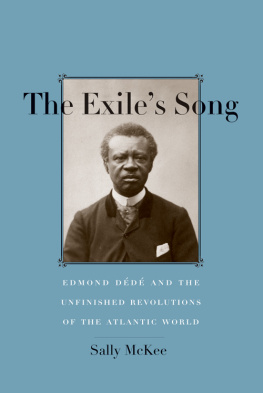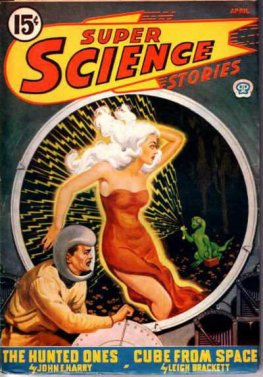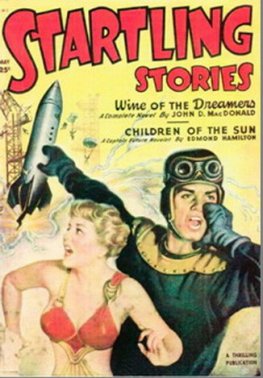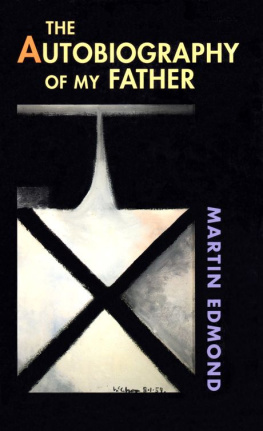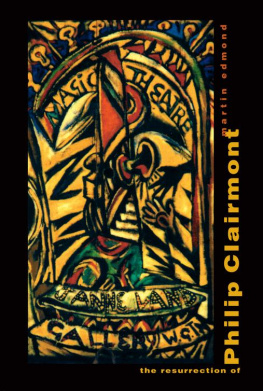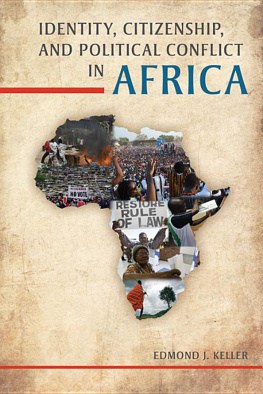Dédé Edmond - The Exiles Song
Here you can read online Dédé Edmond - The Exiles Song full text of the book (entire story) in english for free. Download pdf and epub, get meaning, cover and reviews about this ebook. City: New Haven, year: 2017, publisher: Yale University Press, genre: History. Description of the work, (preface) as well as reviews are available. Best literature library LitArk.com created for fans of good reading and offers a wide selection of genres:
Romance novel
Science fiction
Adventure
Detective
Science
History
Home and family
Prose
Art
Politics
Computer
Non-fiction
Religion
Business
Children
Humor
Choose a favorite category and find really read worthwhile books. Enjoy immersion in the world of imagination, feel the emotions of the characters or learn something new for yourself, make an fascinating discovery.
- Book:The Exiles Song
- Author:
- Publisher:Yale University Press
- Genre:
- Year:2017
- City:New Haven
- Rating:5 / 5
- Favourites:Add to favourites
- Your mark:
- 100
- 1
- 2
- 3
- 4
- 5
The Exiles Song: summary, description and annotation
We offer to read an annotation, description, summary or preface (depends on what the author of the book "The Exiles Song" wrote himself). If you haven't found the necessary information about the book — write in the comments, we will try to find it.
The Exiles Song — read online for free the complete book (whole text) full work
Below is the text of the book, divided by pages. System saving the place of the last page read, allows you to conveniently read the book "The Exiles Song" online for free, without having to search again every time where you left off. Put a bookmark, and you can go to the page where you finished reading at any time.
Font size:
Interval:
Bookmark:
T HE E XILES S ONG

Copyright 2017 by Sally McKee.
All rights reserved.
This book may not be reproduced, in whole or in part, including illustrations, in any form (beyond that copying permitted by Sections 107 and 108 of the U.S. Copyright Law and except by reviewers for the public press), without written permission from the publishers.
Yale University Press books may be purchased in quantity for educational, business, or promotional use. For information, please e-mail (U.K. office).
Set in Scala type by IDS Infotech Ltd.
Printed in the United States of America.
Library of Congress Control Number: 2016939400
ISBN 978-0-300-22136-7 (cloth : alk. paper)
A catalogue record for this book is available from the British Library.
This paper meets the requirements of ANSI/NISO Z39.48-1992 (Permanence of Paper).
10 9 8 7 6 5 4 3 2 1
To my classmates
at
Plainfield High School (Plainfield, NJ),
19701973
C ONTENTS
A CKNOWLEDGMENTS
In the mid-2000s, I decided to change my area of research from the fourteenth and fifteenth centuries to the nineteenth. The process repeatedly humbled me, as I struggled to master the historiography of a new period. In so doing, I accumulated debt upon debt to friends, colleagues, and strangers who helped me hack and hew my way through the thickets that divide scholarly fields. If I had not stumbled across the fascinating figure of Edmond Dd, I doubt I would have had the courage to leave a field of study in which I had established myself and seek out a new one. However, by 2006, I had come to understand that my scholarly inquiries in the medieval period had been proxy quests to make sense of the racial conflicts of my youth. I grew up in Plainfield, New Jersey, in the 1960s, when the rebellions of African Americans and, to a lesser extent, the opponents of the Vietnam War rocked my school, the Quaker meeting I grew up in, my town, and the nation. Those experiences, starting in the summer of 1967, climaxing in April 1968, and flaring up now and then thereafter until I graduated from high school in 1973, left indelible marks on my classmates, many of whom I had known since kindergarten, and myself. I undertook this project, in part, to understand what happened in Plainfield and to us, the people who lived there.
In New Orleans, a great city to work in, I owe thanks to The Amistad Research Center at Tulane University, especially Christopher Harter; the City Archives of New Orleans, especially Greg Osborne; and kind staff at Historic New Orleans Collection. I regret not spending more time with Lester Sullivan, retired archivist at Xavier University, before he passed away. This would have been a lesser book without him. In France, the unfailingly gracious staff at the Archives municipales de Bordeaux, the Archives dpartementales de la Gironde, the Bibliothque municipale de Bordeaux, the Archives nationales de France (CARAN), the Dpartement de musique at the Bibliothque nationale de France, and the Archives de Ville de Paris sweetened the experience of working there. The archivists at the National Archives and Records Administration in College Park, Maryland, allowed me access to everything I needed.
From my friends and colleagues at University of California at Davis, who had every right to be bewildered by the dramatic shift in my research, I received support, constructive advice, and encouragement: Emily Albu, Jessica Blake, Beverly Bossler, Joan Cadden, Ian Campbell, Corrie Decker, Greg Downs, Omnia El-Shakry, Nina Farnia, Jessica Fowler, Bill Hagen, Ellen Hartigan-OConnor, Kyu Ku Kim, Debbie Lyon, Joby Margadant, Ted Margadant, Lisa Materson, Kathy Olmsted, Annie Perez, Eric Rauchway, Rachel Reeves, Andres Resndez, Mike Saler, Marian Schlotterbeck, Alan Taylor, Clarence Walker, Louis Warren, and Eran Zelnik. Ari Kelman steered me toward not only a good bike and a terrific dog trainer but also a helpful press. Maureen Miller shared her considerable experiences with book images. Even though Kathy Olmsted had the distracting responsibilities of department chair, she read the final draft of this work with her characteristic acuity. Dr. Beverly Wilcox taught me a lot about musicology. Professor D. Kern Holoman of the UC Davis Department of Music gave me insight into Dds opera manuscript. I am grateful to UC Davis Committee on Research for the funds that supported my research trips. Grace Woods has my deepest gratitude for making the wheels of our graduate program run smoothly with modest input from me.
Pierre Boulle, Clive Brown, David Geggus, Christopher Hanson, Jean Hbrard, Jennifer Heuer, Claire Jordan, James Oakes, Sue Peabody, Leon Robinson, Richard Rosenberg, Nico Schuyler, Rebecca Scott, and Tyler Stovall generously shared with me their knowledge and expertise. Diana Haney was very generous with the journals and photograph of her ancestor Clarendon Davisson.
The professionals at Yale University PressErica Hanson, Chris Rogers, Clare Jones, and Eva Skeweswere everything an author could wish for: prompt, communicative, clear, supportive, and responsive.
Having spent as much time away from home as I have in order to write this book, I found sustained refuge, with good food and wine thrown in, with friends in the United States and Europe. My cozy launchpad for continental Europe is located on Hartham Road in London, where my fairy godchildren Ava and Claudia live (with their parents, Ann Matchette and Jonathan Foyle). Logistically and emotionally, this project would have been far, far less fun and rewarding without their company. Since August 2006, exactly a year after Hurricane Katrina, I have stayed at Jill and Charles Abbyads supremely comfortable Chimes Bed and Breakfast, the best in New Orleans. During the two weeks in 2012 when I looked after their inn while they were on vacation, Hurricane Isaac struck, and I found myself preparing food in the dark and the heat for hungry reporters. Unaccountably, it only made me fonder of them.
My small gang of readers saved me from most of my excesses: Allison Coudert and Rosamaria Tanghetti. Given how busy they are, they have earned my everlasting gratitude and friendship for the time they spent reading my manuscript.
And my beloved familyMarcy McKee, Louis Draper, Ryan and Elle Draper, Cathy and Doug Olesen, Carol and Bill Stoy, Curt and Cheryl Stoy, Claudia Stoy, Tao Zervas, and Amy Carpenter, and, the most adorable of the whole bunch, Aiolos and Athenamay now meet the man whom I have been chasing around the Atlantic over the past eight years.
1 Lost
East of the Bahama Islands in the Atlantic Ocean, the passenger freighter Marseille crashed into a tropical storm during the night of October 9, 1893. It had been en route to New Orleans from, most recently, Bordeaux and, before that, Amsterdam. On board were 350 tons of freight, a crew of forty-seven, and forty-six passengers. Only one of the passengers occupied a first-class cabin, a fact that seems odd, given that the Marseille was no ordinary passenger freighter. It had a reputation for providing well-funded passengers with the luxurious amenities great passenger steamship lines offered on their vessels.
For two days, under a gray billowing sky, the sea dealt punishing blows to the steamer. By the end of the second day, Captain August Gaudillon had maneuvered his ship into calmer waters. But by then the damage was done. A leak had sprung in the hold where the coal was stored. As soon as a crew member informed him of the leak, Gaudillon ordered all hands and passengers to work the hand pumps. Unfortunately, their efforts to staunch the water seeping into the ship failed. Before long, the level of the water reached the furnaces and extinguished the fires. At that moment the captain knew his ship was lost.
Next pageFont size:
Interval:
Bookmark:
Similar books «The Exiles Song»
Look at similar books to The Exiles Song. We have selected literature similar in name and meaning in the hope of providing readers with more options to find new, interesting, not yet read works.
Discussion, reviews of the book The Exiles Song and just readers' own opinions. Leave your comments, write what you think about the work, its meaning or the main characters. Specify what exactly you liked and what you didn't like, and why you think so.

